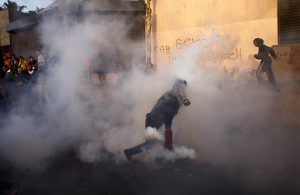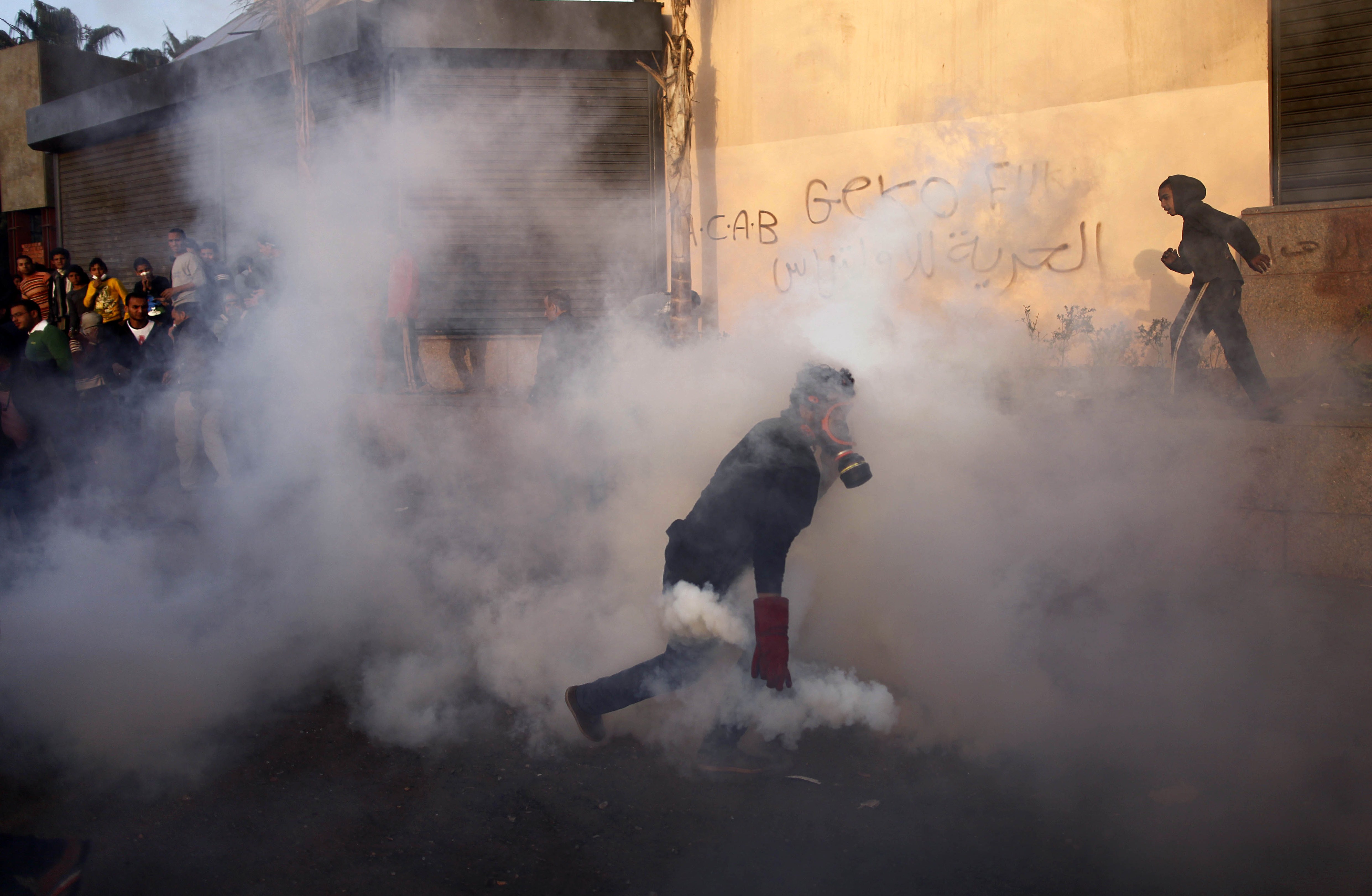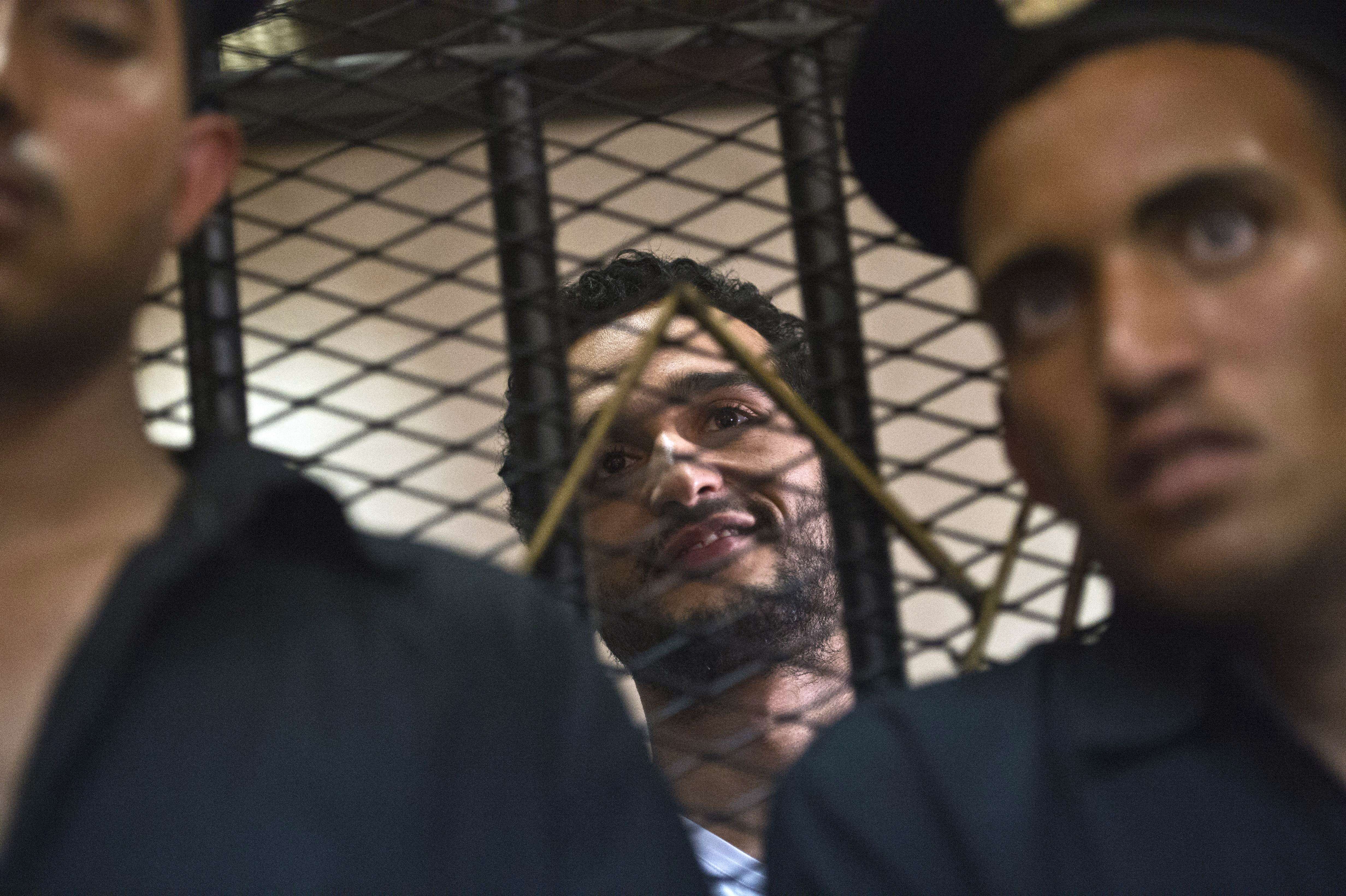
(AFP File Photo)
The Egyptian Initiative for Personal Rights (EIPR) has called upon the Egyptian government to reassess their “repression mechanisms” in a report issued this month.
The report addresses cases of violence in Egypt from 30 June 2013 to 17 August 2013. The report covered events beginning with the ouster of former president Mohamed Morsi and the acts of violence that followed.
“This was the worst violence seen in the country since Egypt’s independence, leaving thousands dead and wounded in just six weeks”, said the report.
The organisation concluded that “the state bears the major responsibility for the high number of casualties”. The organisation said the excessive force of the state was mostly attributed to the lethal force used in response to demonstrations or the failure to protect lives and property of citizens subjected to violence by non-state groups.
It added that the state’s use of violence can be traced back to its dealings with demonstrations surrounding Morsi’s ouster in early July 2013.
“The violence began and later escalated, when on 3 July the armed forces deposed President Mohamed Morsi and appointed an interim government headed by Judge Adli Mansour, the chief justice of the Supreme Constitutional Court,” read the report.
Since 3 July, the country witnessed waves of violence, which came to a peak during the violent dispersal of pro-Morsi sit-ins at Rabaa Al-Adaweya and Nahda Squares.
What followed was a series of retaliations that varied from attacks on Coptic Christians, police officers, and unarmed civilians.
The first part of the report examined events with an unprecedented level of civil violence where “the absence of the state was the main source of escalation”. The report stated that between clashes in Moqattam on 30 June, and clashes in Bayn al-Sarayat on 2 July, at least 53 people were left dead and hundreds of others injured. The report also cited the clashes in Manial, during which four others were killed.
The report moved on to discuss the dispersal of the sit-in in front of the Republican Guard Club, where 61 people were left dead, and the demonstrations in Al Mansoura, where four female protesters were killed. The section ended with the Nasr Road eventswhere security forces confronted pro-Morsi supporters, leading to the death of 91 people.
The report then discussed the violent dispersal of the Rabaa Al-Adaweya and Al-Nahda squares on 18 August, and the sectarian violence that erupted in Upper Egypt in response.
“43 churches came under attack. Of these, 27 of were looted and burned almost or entirely to the ground, while 13 churches were partially looted and their doors and windows vandalised or destroyed; shots were fired at three churches. The attacks also struck seven schools and six Christian associations, including two medical centres and an orphanage,” the report stated.
EIPR provided steps the security apparatus should have taken to limit the violations.
“Security forces should have observed two main principles when clearing the sit-ins at Rabaa and Al-Nahda: proportionality and good administration,” the organisation asserted. The report advised that in the case that the government should use its “repression mechanisms”, it should devise a number of scenarios and plan to how to respond to each one.
EIPR stated Egypt’s security and legal apparatuses “may require far-reaching changes and reform of the political system and the scope of operation of the security apparatus, and a much clearer emphasis, concluding with various recommendations.
Recommendations included the investigation of state officials in the interior ministry and armed forces, as well as the formation of an independent committee of security and legal experts and civil society representatives to develop policy and amend laws
The report stressed on repealing the protest law in its current form, which was issued by decree of interim president Adly Mansour on November 2013. The law putsheavy restrictions on demonstrations and organisation, and expression of opinion, with participants being given jail sentences.
The report closed by emphasising the importance of making legal amendments that would address incitement to violence without “infringing on the right to the peaceful expression of opinion”.




